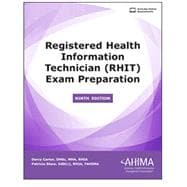A Registered Health Information Technician (RHIT) plays a vital role in the healthcare industry, ensuring the accuracy and security of patient health information. Imagine the impact you could have by accurately managing and maintaining critical medical records – empowering healthcare providers to deliver top-notch care. This vital role requires meticulous attention to detail, strong organizational skills, and a deep understanding of medical terminology. This article will explore the journey to becoming a Registered Health Information Technician, highlighting the key steps, necessary skills, and potential career paths within this rewarding field. We’ll cover everything from certification requirements to practical tips for success, offering a clear roadmap for aspiring professionals.
Understanding the Role of an RHIT
Essential Responsibilities
Registered Health Information Technicians (RHITs) are the backbone of healthcare data management. They meticulously collect, organize, and maintain patient health records, ensuring accuracy and compliance with regulations such as HIPAA. Their responsibilities encompass a wide spectrum of tasks, including coding medical procedures, abstracting clinical information, and ensuring data integrity. Essentially, they are the guardians of patient health information, ensuring it is available when and where it’s needed. A crucial aspect of this role involves a comprehensive understanding of medical terminology and procedures, allowing for efficient retrieval and utilization of information by physicians, nurses, and other healthcare professionals. In this respect, becoming an RHIT can open doors to various career paths, each demanding a specific set of skills and expertise.
Gaining the Necessary Knowledge and Skills
Education and Training Requirements
To become a qualified RHIT, you’ll typically need an associate’s or bachelor’s degree in health information technology or a related field. Hands-on experience within a healthcare setting is often seen as an invaluable asset to enhance the understanding of patient records and administrative processes. Many aspiring RHITs find success in entry-level roles like medical records clerks, which offer practical experience within the healthcare industry. This practical experience helps equip them with the essential skills to be successful in a specific job title.
Certification and Career Advancement
Steps in Obtaining Certification
The next step is obtaining the necessary certification from the American Health Information Management Association (AHIMA). This involves meeting educational qualifications, passing the AHIMA certification exam, and actively maintaining the credentials through continuing education. This certification is usually a key component in securing a position as an RHIT, as it validates your knowledge and expertise in the field of health information management. The certification ensures you comply with all legal and ethical standards required of your role.
RHIT Skills and Qualities
Key Characteristics of Success
Strong organizational and time management skills are essential for RHITs. They must also have a keen eye for detail, as accuracy is paramount in maintaining patient records. A strong foundation in medical terminology and a deep understanding of healthcare regulations and compliance standards (like HIPAA), are critical. Problem-solving abilities are also valuable. Imagine a situation where there’s an error or discrepancy in patient data; the RHIT needs to identify and resolve the issue promptly and accurately. These qualities ensure smooth operation within the healthcare setting.
Career Paths for RHITs
Diverse Opportunities
Beyond traditional medical record roles, RHITs can explore various career paths, such as clinical documentation improvement specialists, coding specialists, or health information management consultants. Depending on experience and goals, there are opportunities for upward mobility and specializations within the field. Consider, for example, a healthcare organization seeking a dedicated team leader to guide the medical records department. An RHIT with strong leadership skills and proven experience can be a valuable asset for such an opportunity.
Further Resources
AHIMA and Other Organizations
The American Health Information Management Association (AHIMA) is an invaluable resource for those seeking to become or further develop their RHIT career. AHIMA offers comprehensive information, training programs, and networking opportunities for professionals in the field. Also, explore local chapters or professional associations in your area for support, connections, and opportunities for continued growth.
Additional Considerations
Staying Current and Adapting
The healthcare industry is constantly evolving, with new technologies and regulations emerging frequently. Staying up-to-date with industry trends and maintaining knowledge of new healthcare laws and regulations is crucial for RHITs.
Entry-Level Roles
Initial Career Steps
RHITs can start in entry-level positions like medical records clerks or assistants, gaining experience while they pursue their certification. These positions often provide valuable on-the-job training and expose them to real-world applications of health information management principles.
Maintaining Certifications
Continued Learning
Maintaining RHIT certification requires continuous learning and professional development. Attending seminars and workshops, or actively pursuing continuing education is essential to stay abreast of changes in healthcare technology, legislation, and best practices.
In conclusion, becoming a Registered Health Information Technician (RHIT) is a rewarding career path that offers valuable opportunities for growth and impact within the healthcare industry. The RHIT plays a crucial role in ensuring the accuracy, security, and accessibility of patient health information, supporting healthcare professionals, and improving patient care. This article has highlighted the key steps involved in achieving this certification, the required skills, and how to find the right resources to prepare yourself for success. If you’re passionate about healthcare and committed to meticulous record-keeping, pursuing an RHIT certification can be a very fulfilling career choice. Consider exploring online resources like the AHIMA website for further guidance and connect with professionals in the field for mentorship and support!
